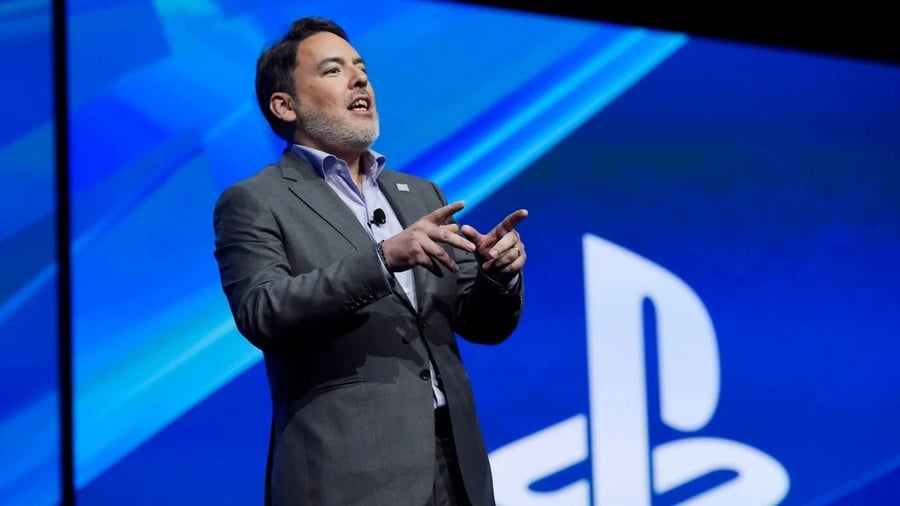
Former president and CEO of Sony Interactive Entertainment, Shawn Layden, began foretelling the current, apocalyptic state of the video game industry in 2020. A piece of conventional wisdom industry onlookers will often cite, Layden himself says it was no remarkable feat, gleaned by observing trend lines over decades. He even offered some suggestions for how developers can cut costs in the future and get their games out quicker.
Speaking at length with GamesIndustry.biz, Layden magnanimously acknowledged being proven correct: "Sadly, it does my heart no good that I think I was right. And it wasn't any great prediction. It was watching trend lines of over 25 years of gaming. The numbers only go in one direction. Games don't get any cheaper; they don't get shorter, they get more complex, and they become more costly. The large blockbusters, when people are swinging for the fences, they're coming in at the $150 to $250 million bracket, and that is a huge burden on the game development business model, on the publishers for carrying that, and [that's led] to some of the contraction in the marketplace that we've seen."
GamesIndustry.biz is running a series on how developers can make games quicker and, therefore, cut costs, and they put this line of questioning to the former PlayStation boss. Layden explained: "We live in a world where only 32% of gamers actually finish the game, so we're making a lot of game that 68% of the people aren't seeing." He thinks that the length of a game is not necessarily the deal breaker it used to be; with the average age of gamers approaching early 30s, that's a massive pool of players that (generally speaking) have more money than they do time.
This was the exact opposite situation faced by Sony during Layden's tenure: "PlayStation 1, 2, and 3 generations, [length] was like your top review point. We kept judging games by, you know, how much gameplay you get for your dollar. And maybe that was a decent metric back in the times when the average gamer was in their late teens/early 20s, which means they're time-rich and money-poor, so having to sit down for that long of a sesh to get through some huge RPG seemed reasonable."
Next, he says developers must stop chasing photorealism, questioning whether it improves gameplay or story commensurately: "I don't believe you can get across the uncanny valley; I think that will always be just five steps ahead. So instead of chasing that, let's go back to exciting game design." He says we're past the point where most players even notice the addition of things like advanced ray tracing.
Layden also suggests letting the machines do more of the work, citing the Hello Games approach. He says AI will have its uses, but the idea it can create anything new of worth is ridiculous: "That is not going to happen. AI only sees in one direction, which is backwards. It puts stuff together to make you think you're seeing forward, but you're really not; you're just seeing a rehash of backwards." Meanwhile, he sees No Man's Sky as "a game with ultimately infinite scope, but it's essentially done by less than ten people because they spent a lot of time building the pipeline, the toolset, which allowed them to create over and over, making the machine do most of the procedural heavy lifting". He concluded: "We need to get more of that into gaming."